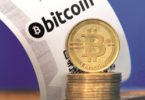A bitcoin is essentially a digital token or code mimicking a virtual currency. With India’s recent demonetization, the volume of bitcoins being traded there has substantially increased to nearly two times its prior levels, pushing its value to new highs.
Since the early days of demonetization, bitcoin prices in India have been hovering in an upper range of $866 to $896 a piece; in a mere 18 days after the demonetization speech of Prime Minister Narendra Modi, the price of bitcoins on Zebpay, which claims to have over 130,000 users, had surged from $757 to $1,020 (per bitcoin), whereas in the U.S. (the benchmark market for most cryptocurrencies), bitcoins are trending at $770 apiece, marking a clear premium on the Indian bitcoin exchanges.
Some part of this price buoyancy in bitcoins can be attributed to market-making initiatives of Indian exchanges. In order to maintain a tight order book, exchanges increased the bitcoin price when there was high demand. Post-demonetization, exchanges like Zebpay have raised prices marginally to quieten demand (from prospective buyers) and also to lure coin owners to sell their holdings. This strategy seems to have paid off as 350 to 600 coins are being traded on Indian exchanges everyday. In the past month, out of about 20 bitcoin startups, the country’s three funded bitcoin trading platforms – ZebPay ($1 million), Unocoin ($1.5 million), and Coinsecure ($1.5 million) – have registered a surge in new users willing to experiment with the crypto currency as an alternative asset class.
The new fondness for bitcoins has been a result of a cascade of global uncertainties that began with Brexit, leading to a weak Chinese yuan, followed by Donald Trump’s win and Modi’s crackdown on untaxed money, resulting in a precariousness of investments in local gold and real estate markets. In India, only a few companies accept bitcoin payments, and that too as indirect transactions made through the exchanges. For most users, bitcoins are investments that are similar to gold. They are appearing as a surer bet to investors, even those with a somewhat delicate appetite for risk.
“Our trade volume in November touched Rs. 120 crore, up by 25% compared to October, and our revenue grew 25% as well,” said Saurabh Agarwal, co-founder of Zebpay. The Ahmedabad-based bitcoin wallet and exchange has added 50,000 new users in November, higher than its typical monthly average of 20,000 new users. On the other hand, Unocoin, which recently secured funding from Blume Ventures and U.S.-based trading firm Digital Currency Group, has registered a threefold spike in users in the past month, to 120,000 and has witnessed a spike in trading volumes, which have doubled to about 300 bitcoins in a day.
The increase in its volumes also stems from the fact that there were speculations that the government could be planning a ban on the importation of gold as the precious metal reached a two-year high in November. In 2017, according to Benson Samuel, founder of Coinsecure, “India will definitely look at regulating bitcoin and setting practices to be followed shortly.”
The Indian government’s resolve to work on bitcoin and the blockchain framework before 2018, along with the growing awareness of bitcoin in the world’s second most populated country could push it to a tipping point. In the report “Payment and Settlement Systems in India: Vision-2018,” the Reserve Bank of India notes that it will be monitoring framework for new technologies and innovations in order to “ensure that regulations keep pace with the developments in technology impacting the payment space…the global level developments in technology such as distributed ledgers, Blockchain etc. will be monitored and regulatory framework, as required, will be put in place.” This will improve the country’s payments ecosystem.
As merchants have started accepting bitcoin payments since the asset can be liquidated with a small transaction fee of 1%, bitcoin has emerged as an investment alternative that is affordable and efficient. The eight-year old virtual currency, with no central authority, is viewed as a safe haven from wild economic fluctuations such as those recently seen in the case of hyperinflation-plagued Venezuela. It is the new game changer in the era of the cashless economy, offering billions of Indians the ability to go cashless using digital currencies.
In spite of this aura of positivity surrounding it there exists a bit of confusion in the market to fulfill its demand. Bitcoins are not issued or backed by banks or government; nobody knows how investments in bitcoins can be taxed and the absence of a regulator makes legal recourse almost non-existent. In India, consumers can’t simply exchange cash for bitcoins. Instead, they’re required to share their bank account details and undergo a know-your-customer process to start trading in the online currency. Therefore in this scenario till the time there are clear legal definitions and framework around digital currencies, bitcoins seem to be remaining the preserve of savvy investors and speculators in India.







